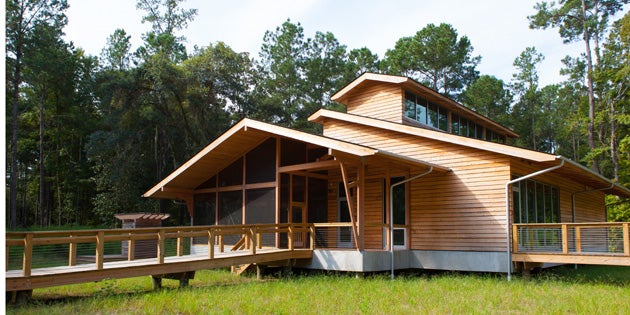
One of two new field research stations at Dixie Plantation.
Academic research at the College of Charleston’s Dixie Plantation just took a huge step forward.
The College recently completed work on two new state-of-the-art environmental field research stations on the 930-acre property that serves as a center for environmental research and historical discovery.
The research stations will enable students and faculty to conduct and analyze research in a variety of academic disciplines while on the the property.
The project was given a major boost by the Spaulding-Paolozzi Foundation, which gave a $1 million grant to match the College’s financial contribution to the stations. In addition, the Dominion Foundation awarded $25,000 to the College to purchase scientific equipment for the research stations. These generous gifts augmented funds raised during the College of Charleston’s Boundless comprehensive campaign.
Located along the Stono River and the Intercoastal Waterway, Dixie Plantation is home to a wide variety of flora and fauna representing Lowcountry ecosystems. Throughout the property, there is an unparalleled array of marshlands, tidal flats, grassland savannas, wetlands, hardwoods and longleaf pines.
The late John Henry Dick, renowned ornithologist and painter of birds, bequeathed Dixie Plantation to the College of Charleston Foundation for the educational use of the College of Charleston. Currently, many undergraduate and graduate-level courses are conducted on the property, including astronomy, vertebrate zoology, art, and archaeology.




